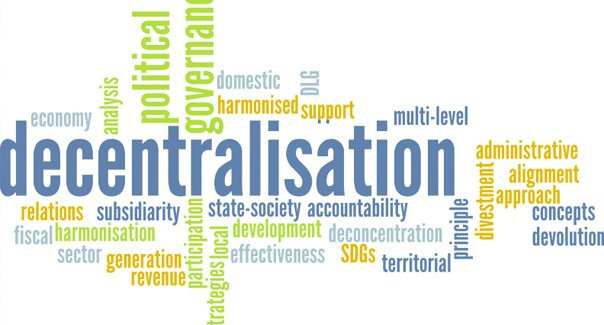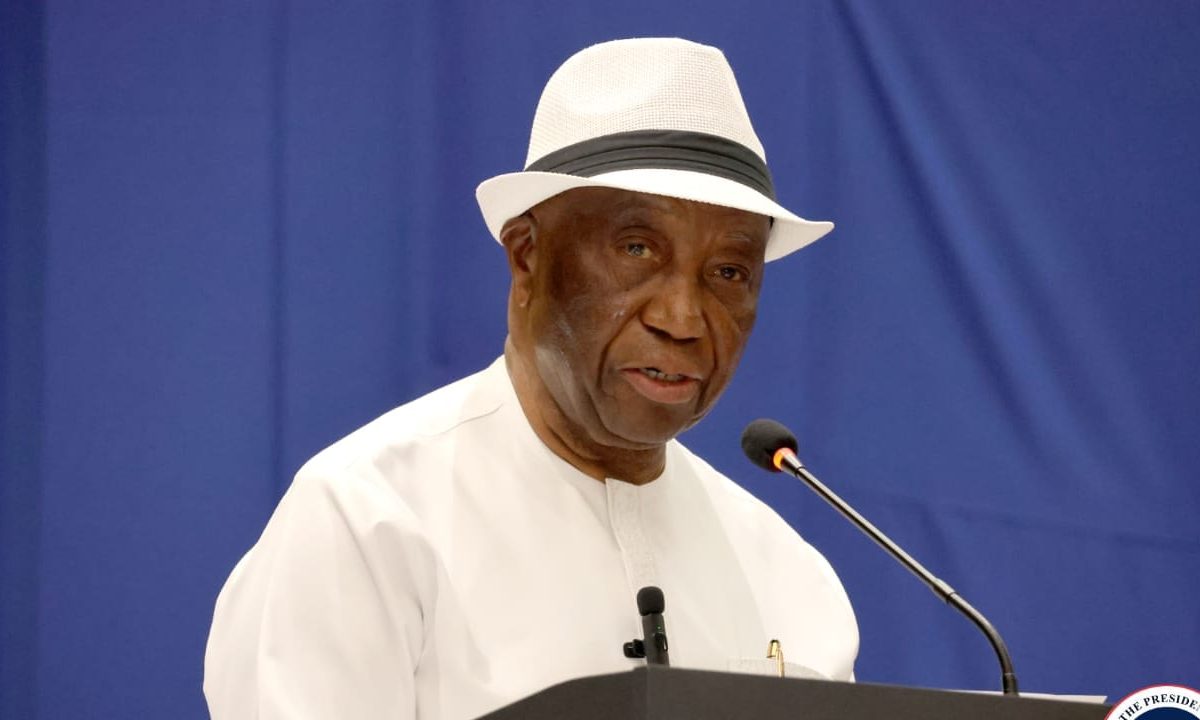Liberia’s Local Government Act (LGA) of 2018 is considered a milestone in the legal and governance framework of the country as it sought to decentralise governance, improve service delivery, and enable citizens to take charge of their developmental issues. The focal point of this article considered sections 2.2(e) and 2.2(f) which grant County Councils the right to approve the annual budget and development plans of the counties. These provisions were deliberately designed so that counties would not continue being administrative projections of Monrovia’s accord, but would be able to plan, execute, and be held accountable for their development activi
In June 2025, a proposal was introduced, to repeal the abovementioned provisions by Mr. Jeremiah Sokan, Representative of Electoral District #1, Grand Gedeh County, a “Freshman Lawmaker” of the 55th National Legislature. His ultimate justification stemmed from the national legislators ascribed oversight and approval authority through County Legislative Caucuses over budgets and development plans thus arguing it would foster fiscal discipline. However, this rationale is contrary to the main intention of decentralisation, which is to give power to the people and their local representatives. If the proposed repeal is carried out, it would go against this vision and undermine the robust impact and functionality as intended by the Local Government Act.
LGA’s Sections 2.2(e) and 2.2(f) and its gains
While these sections 2.2(e) and (f) are not ornamental features of the law but are considered the operational bedrock of decentralisation across local and sub-local levels. Without these, the structured County Councils would become ceremonial bodies with limited authority to influence development outcomes or effectively respond to the needs of their constituencies. Meanwhile, the current structure ensures that decisions, particularly around resource allocation and development planning processes, are based on local realities; therefore, stripping said powers from the County Councils would disrupt service delivery, aggravate local actors, and reintroduce a centralised control on local decisions.
Since the enactment of the LGA of 2018, Liberia has made measurable progress in local governance. The County Service Centres (CSCs) have been established in all 15 counties, providing at least 25 critical services, including the issuance of licences, permits, civil registration, and other administrative documentation. Between 2016 and 2020, these centres generated over US$3.76 million in revenue. In 2022 alone, the centres collected over US$148,000 and L$12.6 million in eleven counties. These resources are best managed and reinvested through locally approved budgets and development plans, as provided for in Sections 2.2(e) and (f). Repealing these sections would centralise revenue control, hinder timely investments in counties, and reduce the responsiveness of service delivery mechanisms.
Beyond the desire of financial implications and operational controls, the repeal presents serious governance risks on local development initiatives. In lieu, local governance becomes more vulnerable to the elites, thus satisfying personal interests and weakening public participation and service delivery. As it stands, the County Councils are a genuine example of inclusion and participation—comprising of youth, women, traditional leaders, people living with disabilities (PWDs), civil society representatives, and local government officials. Their decision-making processes integrate a spectrum of local voices and interests. Thus, removing core functions excludes constituencies, undermines civic engagement, and encourages political manipulation. Given Liberia’s delicate post-war democratic progress and the urgent need to foster trust in public institutions, it is ‘illogical’ to propose repealing these sections now—or ever.

From December 9 to 13, 2024, the Ministry of Internal Affairs, together with UNDP and MFDP, set up County Development Planning Units (CDPUs) in six counties: Bong, Nimba, Grand Bassa, Bomi, Gbarpolu, and Lofa. The CDPUs trained on development planning and budgeting, inclusiveness, as well as gender responsiveness in governance. More than 60 personnel, including 15 women, received training to enable them to implement Sections 2.2 (e) & (f) of the relevant policy. A report from the Ministry of Internal Affairs for the first quarter of 2025 indicates that County Councils from Nimba, Bong, and Grand Bassa Counties, among others, have embraced decentralization—enhancing governance, agriculture, peacebuilding, and technology coordination at the local level.
The 2025 semi-annual progress report revealed that the validation workshops for the County Development Agendas included almost 1,000 participants from all 15 counties. Of this number, women constituted 34 percent, youth 19 percent, and persons with disabilities 6 percent. This indicates substantial progress toward more inclusive local governance—driven by section 2.2(f) focused on development planning. On March 15, 2025, the Ministry of Internal Affairs and Ministry of Finance and Development Planning conducted a baseline assessment of County Service Centres (CSCs) and County Treasuries covering Nimba, Bong, and Grand Bassa, among others. This is also a practical move toward building fully functional treasuries tied to revenue and expenditure systems mandated by sections 2.2(e) & (f) of the Local Government Act of 2018.
Now, Grand Bassa hosts a multi-service centre, handling everything from birth certificates to business registration and generating local revenues as well as formalising businesses. Bong and Nimba counties benefited from civic accountability initiatives—CSOs like Naymote, Centre for Democratic, and CENTAL through a consortium have introduced community scorecards to monitor public service delivery, promote transparency, and enhance citizen oversight. These developments confirmed that the County Councils’ effective control over budgets and development planning can deliver more on accountable, inclusive, and effective local governance programmes.
Disrupts Fiscal Decentralisation Frameworks
Moreover, such a repeal would violate the goal of the Revenue Sharing Act of 2022 (Chapter 7.2) which stipulates that 40% of the revenue generated through County Service Centres remains to be spent at the county level for local development. Currently, the county councils have the power to manage these resources. Stripping this power would result in the collapse of fiscal decentralisation, bringing in greater stagnation, mismanagement, and reliance on central government handouts before implementing local development initiatives. The efficiency provided by locally driven budgeting and planning would be lost, replaced by oppressive top-down bureaucracy approach.
The National Civil Society Council of Liberia have rejected the repeal proposal without exceptions. Among others, include Naymote Partners for Democratic Development, Integrity Watch Liberia, and Accountability Lab expressed concerns about the repeal, predicting it would facilitate corruption and reverse democratic gains. These organisations posit that assuming executive functions at the local level is a breach of governance principles by simple making the legislator both “referee and player.” Through these actions, local government structures are devoid of institutional integrity and accountability.

Local progress for national impact: maintain the LGA
Despite the challenges in implementing the LGA––such as limited funding, weak infrastructure, and capacity gaps—progress has been steady. The government has enhanced local administrative capacity and improved inter-county coordination with the aid of partners such as the UNDP. These positive reforms further progress that should be embraced, not undermined. Striking down sections 2.2(e) and (f) would not only disrupt existing systems, however, demonstrate to the world that Liberia has no intentions of deepening democratic governance at the local level.
In conclusion, the proposed repeal of Sections 2.2(e) and (f) represents a serious threat to the integrity and functionality of Liberia’s decentralisation efforts. These amendments should be avoided to allow the County Councils continuously play its pivotal role in local governance, capable of making timely and community-driven decisions. Instead of seeking to reverse the progress made since 2018, the Government of Liberia ought to work toward improving the implementation of the LGA, ensuring that fiscal transfers are made on time, addressing capacity gaps, and strengthening the oversight mechanisms. To enable effective decentralisation and enable governance that is truly by and for the people, local leadership must NOT be stifled— they must be granted greater authority.
About Author:
D. Freeman Myers is a Liberian civic tech strategist, data analyst, and governance reform advocate with a proven track record in research, project monitoring, and civic engagement. Through his work at NAYMOTE Partners for Democratic Development, he continues to contribute to the development of reports on the President Metre Project, promoting transparency and political accountability in Liberia’s public sector. He has served in key roles including, Data Analyst Assistant for the 2023 EU Election Observation Mission, and Programme Coordinator at CELDI-Liberia. Passionate about youth development, Myers has trained emerging political leaders and advanced civic education initiatives across the country. His work continues to shape democratic discourse and inspire participatory governance in Liberia.
References
United Nations Development Programme (UNDP) Liberia
Liberia Decentralisation Support Programme (LDSP II)
https://www.undp.org/liberia/projects/liberia-decentralisation-support-programme-ldsp-ii
Ministry of Internal Affairs, Liberia
County Service Centres and Local Government Status Reports
https://mia.gov.lr/ (official updates on local governance and CSC operations)
AllAfrica News (2023)
“Liberia: Gains in Local Governance Since the Enactment of the Local Government Act”
https://allafrica.com/storeys/202306010524.html
Ministry of Finance & Development Planning (MFDP), Liberia (2024)
Fiscal Decentralisation and Revenue Sharing Act Implementation Report
https://www.mfdp.gov.lr/index.php/media-centre/press-release/gol-begins-nationwide-assessment-of-county-service-centres
Liberian Investigator (2025)
“House Reviews Bill to Amend Local Government Act, Transfer Budget Oversight”
https://liberianinvestigator.com/news/national-news/house-reviews-county-budget-legislative-oversight-bill
Integrity Watch Liberia (2025)
Statement on Proposed Amendments to the Local Government Act
https://integritywatchliberia.org/news/statement-on-proposed-local-government-act-amendments/
Ministry of Internal Affairs. First Quarter Progress Report (January–March 2025). https://www.mia.gov.lr/sites/default/files/documents/MIA%20First%20Quater%20report%202025%20FINAL.pdf
Ministry of Finance and Development Planning. (2025, March 15). GOL Begins Nationwide Assessment of County Service Centres and County Treasuries.
https://www.mfdp.gov.lr/index.php/media-centre/press-release/gol-begins-nationwide-assessment-of-county-service-centres
UN Peacebuilding Fund & UNDP Liberia. Semi-Annual Project Progress Report: December 2024 – June 2025.
https://mptf.undp.org/sites/default/files/documents/2025-06/pbf_sap_june_2025_semi-annual_project_progress_report_submitted_online_june_15_2025.pdf
FrontPage Africa. (2024, December 21). NAYMOTE Empowers Communities to Monitor Governance Commitments.
https://frontpageafricaonline.com/news/naymote-empowers-communities-to-monitor-governance-commitments/
Liberian Investigator. (2025, July). NAYMOTE Trains Local Officials in Bong County on Civic Accountability and Local Governance.
https://liberianinvestigator.com/county-news/naymote-trains-local-officials-bong-county/
**This piece was written by D. Freeman Myers


 Trending
Trending 
